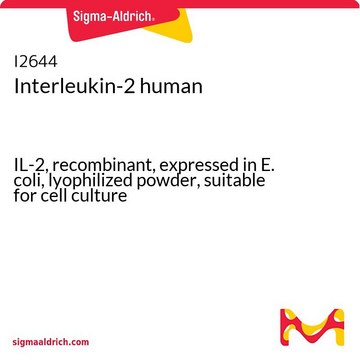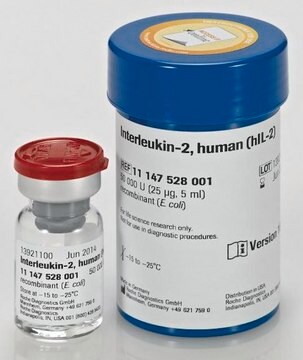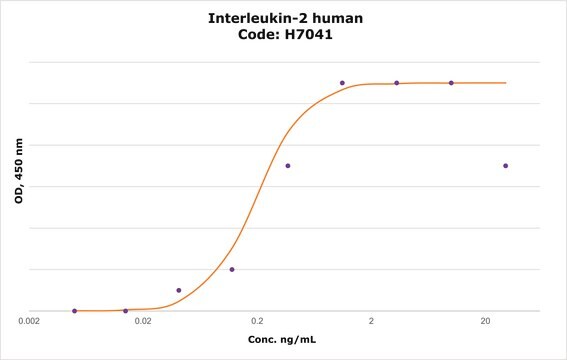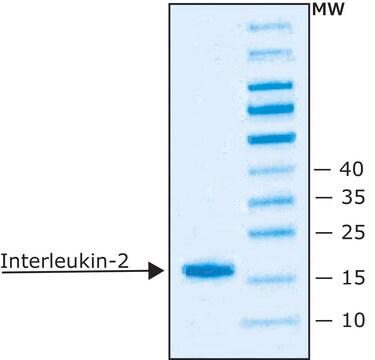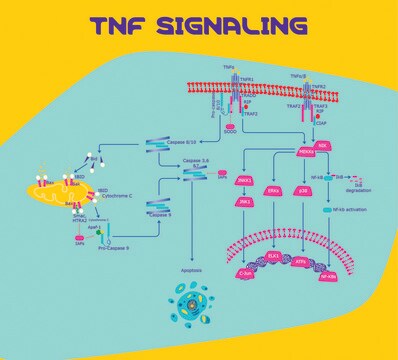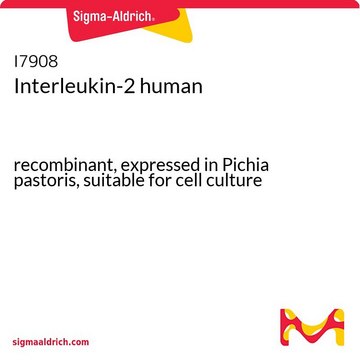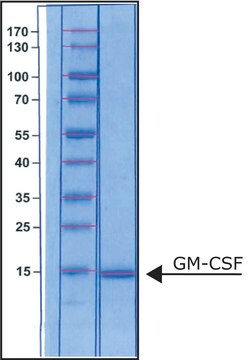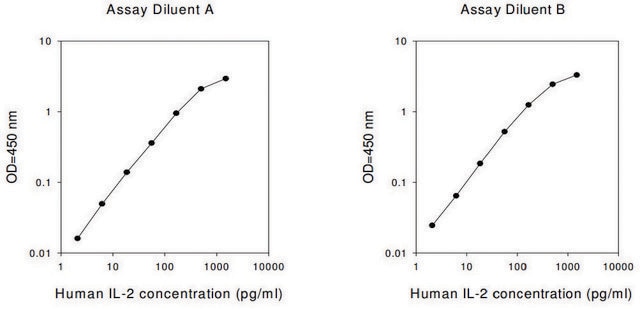SRP3085
Interleukin-2, human
Animal-component free, recombinant, expressed in E. coli, suitable for cell culture
Synonym(s):
Aldesleukin, IL-2, T-cell growth factor (TCGF)
About This Item
Recommended Products
biological source
human
recombinant
expressed in E. coli
Assay
≥95% (HPLC)
form
(Lyophilized with no additives from a 0.2µ filtered solution)
potency
≤0.5 ng/mL ED50
mol wt
15.5 kDa
packaging
pkg of 50 μg
technique(s)
cell culture | mammalian: suitable
impurities
≤1.00 EU/μg endotoxin, tested
UniProt accession no.
shipped in
wet ice
storage temp.
−20°C
Gene Information
human ... IL2(3558)
General description
Application
- IL-2 (interleukin 2) human has been used for the detection of IL-2 using 4-Fluoro-3-nitrophenyl grafted gold electrode based platform.
- It has been used for the production of tumor-specific cytotoxic T lymphocytes.
- It has been used for the proliferation of T lymphocytes.
Biochem/physiol Actions
Sequence
Physical form
Reconstitution
Signal Word
Warning
Hazard Statements
Precautionary Statements
Hazard Classifications
Eye Irrit. 2 - STOT SE 3
Target Organs
Respiratory system
Storage Class Code
11 - Combustible Solids
WGK
WGK 1
Choose from one of the most recent versions:
Already Own This Product?
Find documentation for the products that you have recently purchased in the Document Library.
Customers Also Viewed
Protocols
WST-1 assay protocol for measuring cell viability, proliferation, activation and cytotoxicity. Instructions for WST-1 reagent preparation and examples of applications. Frequently asked questions and troubleshooting guide for WST-1 assay.
Our team of scientists has experience in all areas of research including Life Science, Material Science, Chemical Synthesis, Chromatography, Analytical and many others.
Contact Technical Service